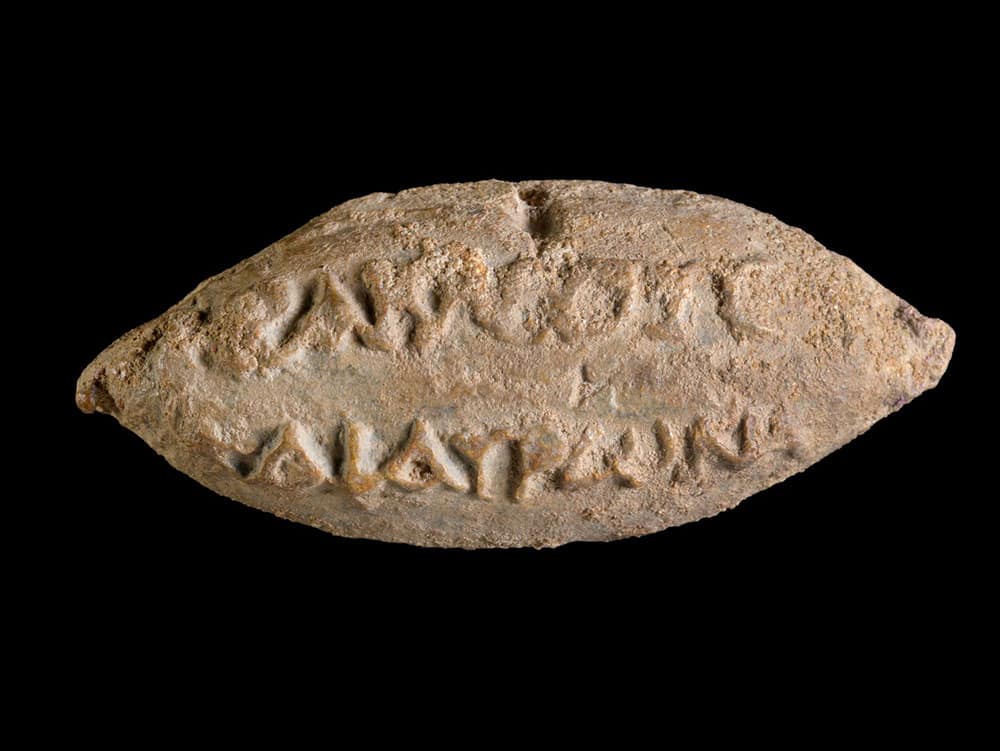
Had Blucher been a little late at Waterloo,
or Cleopatra’s nose been just a little shorter, as speculated counterfactually by Blaise Pascal,
or there had been a lot of Jews, not just a few,
Napoleon and Mark Antony would be seen as heroes, and the Jewish people as the bigger rascal.
Success of those who’re counterfactual relies
on the existence of institutions in which great dissent can flourish. That’s the basic reason why
requesting Yavne proved Ben Zakkai to be wise,
enabling Jews to be creative, and not just on what they’d been taught to rely.
Counterfactual were the Greek words on a bullet in
a false prediction, saying glibly “Victory for Heracles and Hauron”. Fighting Maccabees,
the Greeks failed to fulfill ballistically this bulletin,
deciphered in Ben-Gurion University by Yulia Ustinova with great expertise.
Rabbi Yohanan ben Zakkai’s choice of Yavneh as the place where the Roman conqueror of Jerusalem would allow him to renew Jewish scholarship and worship, reported in the Talmud in Gittin 56a, was based on the fact that the name of Yavneh resonates with Yavan, the Hebrew name for Greece. The Romans had adopted Greek culture, and Rabbi Yohanan ben Zakkai was counterfactually seeking coexistence with Greek culture in accordance with Noah’s blessing of Japheth, the ancestor of Greeks, after the destruction of the world by a Flood, quoted in Gen. 9:27:
כז יַפְתְּ אֱלֹהִים לְיֶפֶת, וְיִשְׁכֹּן בְּאָהֳלֵי-שֵׁם. 27 God enlarge Japheth, and he shall dwell in the tents of Shem
Michael Bachner writes in the 12/8/22 Times of Israel: “2,200-year-old Greek sling bullet may have been used against Jews in Hanukkah story: Found in Yavne and bearing inscription ‘Victory for Heracles and Hauron,’ weapon could have been tool for psychological warfare against Hasmonean soldiers during revolt”:
Some 2,200 years ago, a Greek soldier stood in battle in what is now the Israeli city of Yavne, aimed his sling at Jewish Hasmonean troops, and launched a projectile at them during battles that would later become part of the story of Hanukkah.
At least, that is one option suggested following the discovery in Yavne of a sling bullet made of lead and bearing a Greek inscription reading “Victory for Heracles and Hauron” — a possible attempt at psychological warfare against enemies.
The Israel Antiquities Authority, which revealed the finding, told The Times of Israel that the sling bullet was discovered about a year ago and has been studied since then. It timed the announcement for Wednesday, 10 days before Hanukkah.
The IAA said in a statement that the sling bullet found in Yavne’s major archaeological site is 4.4 centimeters (1.7 inches) long and around 2,200 years old. Its age places it around the time of the battles between the Seleucid army against the Hasmoneans, who were seeking to prevent the Hellenization of the Jews.
The researchers, however, acknowledged that it isn’t known in what context the slingshot was used, and that there was no conclusive evidence that it even belonged to a Greek soldier.
“It seems that we will not be able to know for sure if the sling bullet belonged to a Greek soldier, but it is not impossible that it is related to the conflict between the Greeks and the Hasmoneans,” said Pablo Betzer and Dr. Daniel Varga, who directed the excavation on behalf of the IAA, in the statement.
“The tiny lead sling bullets, announcing the imminent victory of the gods of pagan Yavne, is tangible evidence of a fierce battle that took place in Yavne at that time,” they added.
According to Prof. Yulia Ustinova of Ben Gurion University, who deciphered the inscription, “the pair of gods Hauron and Heracles were considered the divine patrons of Yavne during the Hellenistic period. The inscription on a sling bullet is the first archaeological evidence of the two guardians of Yavne, discovered inside Yavne itself. Until today, the pair was only known from an inscription on the Greek island of Delos.”
Gershon Hepner is a poet who has written over 25,000 poems on subjects ranging from music to literature, politics to Torah. He grew up in England and moved to Los Angeles in 1976. Using his varied interests and experiences, he has authored dozens of papers in medical and academic journals, and authored “Legal Friction: Law, Narrative, and Identity Politics in Biblical Israel.” He can be reached at gershonhepner@gmail.com.























 More news and opinions than at a Shabbat dinner, right in your inbox.
More news and opinions than at a Shabbat dinner, right in your inbox.